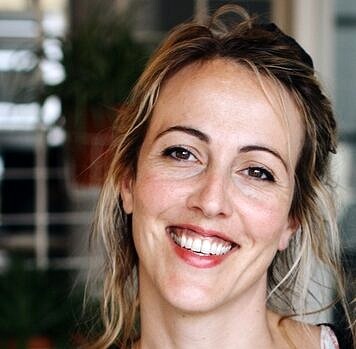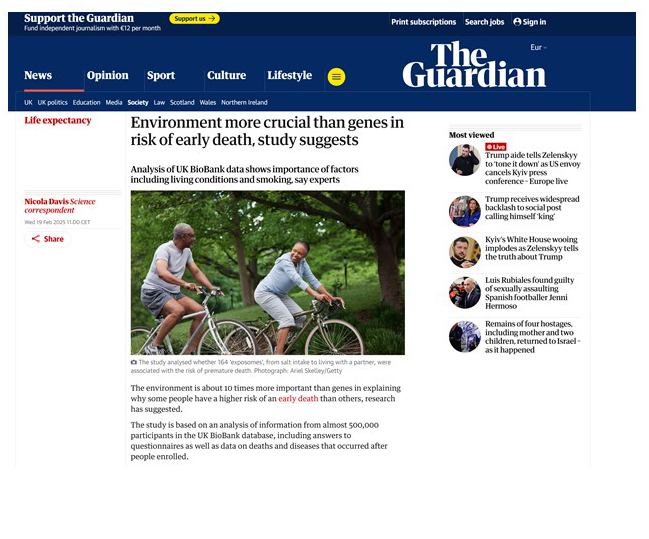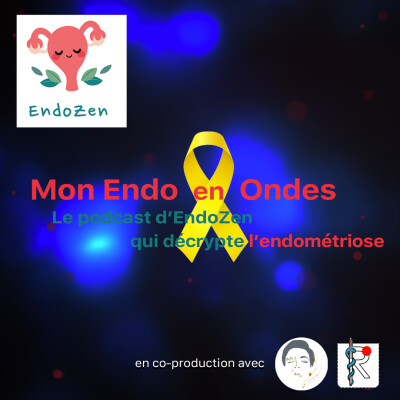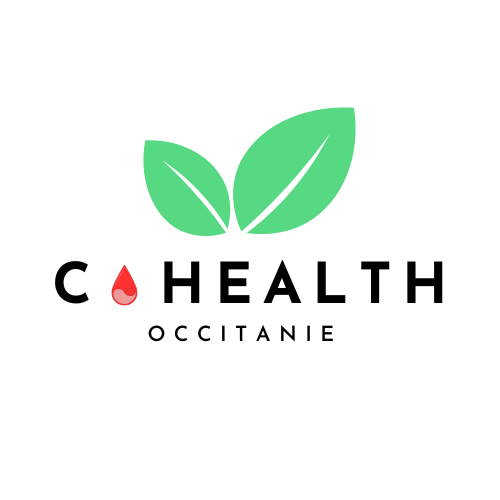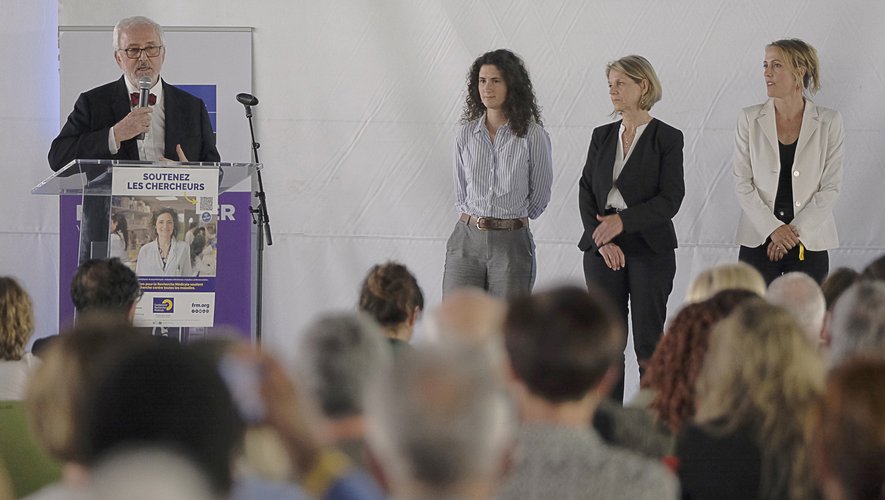Alex Alvergne
Ma recherche porte sur l'écologie évolutive de la santé des femmes. J'utilise les cadres théoriques de la biologie de l'évolution pour comprendre comment les traits physiologiques et comportementaux féminins varient selon les contextes environnementaux, sociaux et culturels.
En tant que chercheuse en écologie évolutive humaine, je propose une approche novatrice pour repenser les notions de "normalité" et de "pathologie" (au sens de Canguilhem, 1943) dans le domaine de la santé féminine. Ma recherche démontre que de nombreuses variations physiologiques, souvent médicalisées comme des dysfonctionnements, peuvent en réalité constituer des réponses adaptatives à des environnements spécifiques.
Mes recherches récentes concernent:
- L'impact de la vaccination et de l'infection sur les cycles menstruels
- Les déterminants écologiques et physiologiques des effets secondaires de la contraception
- Le rôle de la transmission culturelle pour l'évolution des normes sur la reproduction
Je travaille actuellement sur deux questions:
- Quells sont les origines développementales de l'endométriose (EnDOHAD)? en collaboration avec le CHU de Montpellier (Dr Noémie Ranisavljevic) et Simon Fraser University (Bernard Crespi), financé par la fondation pour la recherche sur l'endométriose.
- Quels sont les déterminants sociaux-écologiques de la variation de la santé menstruelle en Occitanie (projet ANR C-HEALTH) en collaboration avec le CHU de Montpellier (Dr Noémie RANISAVLJEVIC).
Pour plus d'information sur mes articles scientifiques, voir ma page Google Scholar
Social clustering of preference for female genital mutilation/cutting in south-central Ethiopia
Menstrual cycle length changes following vaccination against influenza alone or with COVID-19
Environment more crucial than genes in risk of early death, study suggests
Low haemoglobin in arduous seasons is associated with reduced chance of ovulation among women living in the Bolivian altiplano
First episode of the "My Endo on Waves" series - S01E01: Developmental Origins of Endometriosis (EnDOHAD) with Dr Alexandra Alvergne (CNRS)
Socio-Ecology of Menstrual Cycles
9.9 M to support Montpellier researchers shaping the health of the future / Alexandra Alvergne works on the risks of endometriosis
Fondation pour la Recherche Médicale Awards Ceremony | Alexandra Alvergne
Developmental Origin of Endometriosis
- 1
- 2
Contact
- Nom : Alexandra Alvergne
- IdHAL : alexandra-alvergne
- IdRef : 131519409 ,
- ORCID : 0000-0002-3151-9919 ,
Disciplines
Mots-clefs
- COVID-192
- Cultural evolution2
- Female health2
- Menstruation2
- Age at menopause1
- Aggressiveness1
- Anemia1
- Animal-human interface1
- Applying Darwinian principles to Dermatology therapy1
- Autoimmune thyroid diseases1
- Behavioural ecology1
- Big-Five factors Testosterone Extraversion Reproductive success1
- Biocultural1
- Branching processes1
- Cardiology in chimpanzees and humans1
- Contraception1
- Contraceptive dynamics1
- Contraceptive side-effects1
- Demographic transition1
- Developments in geriatrics1
- Disease1
- Disease self-management1
- Emerging infectious diseases1
- Ethiopia1
- Evolution human offspring condition parental care paternal investment paternity uncertainty phenotype matching1
- Evolutionary approaches to medicine1
- Evolutionary ecology1
- Evolutionary foundations for cancer biology1
- Evolutionary medicine1
- Evolutionary public health1
- Face recognition1
- Facial similarities1
- Family composition Child development Stepfather presence Father absence Reproductive traits1
- Family planning1
- Female genital mutilation/cutting FGMC1
- Fertility1
- Gender equity1
- Hand preference1
- Handedness1
- Homo1
- Humans1
- Humans Parenting effort Mating effort Testosterone Polygyny1
- Hyperthyroidism1
- Hypothyroidism1
- Kin recognition1
- Kin recognition olfaction odour cues baboons mice habituation–discrimination task1
- Lateralization1
- Learning1
- Life-history1
- Life-history traits1
- MHealth1
- Menstrual cycle1
- Mixed methods1
- Multi-host processes1
- Neoplasia1
- Nutrition and the Paleodiet1
- Ovarian ageing1
- Paternityuncertainty1
- Patient empowerment1
- Plasticity1
- Polymorphism1
- Public health1
- Quality of life1
- R01
- Reproduction1
- Reproductive aging1
- Reproductive cessation1
- Reproductive success1
- SARS-CoV-21
- Senescence1
- Sexual selection1
- Social networks1
- Social norms1
- Somatic ageing1
- Spillover transmission1
- Testosterone1
- Thyroid hormones1
- Transmissible cancer1
- Vaccination1
- Vaccines1
- Visual phenotype matching1
- Warfare1
- Withdrawal bleed1
- Zoonotic pathogens1
Auteurs
Alvergne Alexandra37
Faurie Charlotte11
Raymond Michel8
Raymond Michel6
Cowlishaw Guy3
Huchard Elise3
Billiard Sylvain3
Agyen Lisa2
Durand Valérie2
Féjan Delphine2
Keestra Sarai2
Knapp Leslie2
Knight Dawn2
Rogers Natalie2
Setchell Joanna2
Voinson Marina2
Roche Benjamin2
Charpentier Marie2
Giraudeau Mathieu2
Zins Marie2
Thomas Frédéric2
Pujol Pascal2
Ujvari Beata2
Sharp Gemma C2
Fraser Abigail2
Kountourides Gabriella2
Maybin Jacqueline A2
Olszewska Zuzanna2
Argentieri M. Austin1
Barthes Julien1
Benavides Julio1
Biro Peter A.1
Boddy Amy1
Bonenfant Sébastien1
Boniface Emily1
Bovet Jeanne1
Caillaud Damien1
Caudell Mark1
Chandler Clare1
Chigudu Simukai1
Crispin Jenkinson1
Darney Blair1
Easey Kayleigh1
Edelman Alison1
Ford Gemma1
Greaves Russell1
Gurmu Eshetu1
Herrick Clare1
Howe Laura D1
Hunter David J1
Högqvist Tabor Mikael1
Johnman Cathy1
Jokela Markus1
Kelly Ann1
Koster Jeremy1
Kountourides Gabriella1
Kramer Karen1
Kuilman Midas1
Lawlor Deborah A1
Leonelli Sabina1
Lezaun Javier1
Lorimer Jamie1
Lukas Dieter1
Lummaa Virpi1
Mace Ruth1
Macfarlan Shane1
Malbos Blandine1
Martinez Laura1
Massengill Eric1
Matsumoto-Oda Akiko1
Mattison Siobhan1
Maybin Jacqueline A1
Mazur Allan1
Mueller Ulrich1
Nicolas Delphine1
Nolin David1
Oda Ryo1
Olszewska Zuzanna1
Parrot Jean-Etienne1
Pentecost Michelle1
Perreau Fanny1
Plard Floriane1
Power Eleanor1
Quinlan Robert1
Reubi David1
Reynolds Adam1
Riou Jérémie1
Ross Cody1
Ruppli Charlène1
Sawyer Gemma1
Schniter Eric1
Sharp Gemma C1
Shea Amanda1
Tabor Vedrana Högqvist1
Telonis-Scott Marina1
Ventola Cécile1
Vitzthum Virginia J1
Weber Kirsten1
Whitley Elise1
Woon Ee Von1
Yi-Sum Chun1
Male Victoria1
Stevens Rose1
Hercberg Serge1
Cousins Thomas1
Hamede Rodrigo1
Schultz Aaron1
Dujon Antoine M1
Smadi Charline1
Sproviero William1
van Duijn Cornelia M1
Boutry Justine1
Amin Najaf1
Ghanbari Mohsen1
Nevado-Holgado Alejo J1
Keestra Sarai M1
Doherty Aiden1
Tissot Sophie1
Gérard Anne‐lise1
Beckmann Christa1
Myers Sarah1
Gurmu Eshetu1
Redhead Daniel1
Howard Janet A1
Gibson Mhairi A1
Collister Jennifer A1
Ginos Bigina1
Llaurens Violaine1
Bonadonna Francesco1
Lemaître Jean-François1
Lemaître Jean-François Lemaître1
Arnal Audrey1
Célérier Aurélie1
Goldberg Marcel1
Vincze Orsolya1
Stevens Rose1
Högqvist Tabor Vedrana1
Argentieri Austin1
Argentieri M. Austin1
Sekalala Sharifah1
Goldberg Marcel1
King Andrew1
Renaud François1
Auteurs de la structure
Revues
Année de production
Institutions
Laboratoires
Départements
Équipes de recherche
- Alexandra Alvergne, Jenkinson Crispin, Charlotte Faurie. Evolutionary thinking in medicine: from research to policy and practice. Springer, 2016, Advances in the Evolutionary Analysis of Human Behaviour. ⟨hal-04028875⟩
- Marina Voinson, Sylvain Billiard, Alexandra Alvergne. Beyond Rational Decision-Making: Modelling the Influence of Cognitive Biases on the Dynamics of Vaccination Coverage. PLoS ONE, 2015, 10 (11), pp.e0142990. ⟨10.1371/journal.pone.0142990⟩. ⟨hal-01240002⟩
- Alexandra Alvergne, Fanny Perreau, Allan Mazur, Ulrich Mueller, Michel Raymond. Identification of visual paternity cues in humans. Biology Letters, 2014, 10 (4), pp.20140063. ⟨10.1098/rsbl.2014.0063⟩. ⟨hal-03008028⟩
- Alexandra Alvergne, Charlotte Faurie. Les traits d'histoire de vie. Thomas, F.; Raymond, M. Santé, médecine et sciences de l'évolution: une introduction, De Boeck, pp.83-123, 2013. ⟨hal-04028898⟩
- Jeanne Bovet, Julien Barthes, Valérie Durand, Michel Raymond, Alexandra Alvergne. Men’s Preference for Women’s Facial Features: Testing Homogamy and the Paternity Uncertainty Hypothesis. PLoS ONE, 2012, 7 (11), pp.e49791. ⟨10.1371/journal.pone.0049791⟩. ⟨hal-04136501⟩
- Charlotte Faurie, Violaine Llaurens, Alexandra Alvergne, Marcel Goldberg, Marie Zins, et al.. Left-handedness and Male-Male Competition: Insights from Fighting and Hormonal Data. Evolutionary Psychology: an International Journal of Evolutionary Approaches to Psychology and Behavior, 2011, 9 (3), pp.354-370. ⟨hal-04023897⟩
- Alexandra Alvergne, Markus Jokela, Charlotte Faurie, Virpi Lummaa. Personality and testosterone in men from a high-fertility population. Personality and Individual Differences, 2010, 49 (8), pp.840-844. ⟨10.1016/j.paid.2010.07.006⟩. ⟨hal-04025987⟩
- Aurélie Célérier, Elise Huchard, Alexandra Alvergne, Delphine Féjan, Floriane Plard, et al.. Detective mice assess relatedness in baboons using olfactory cues. Journal of Experimental Biology, 2010, 213 (9), pp.1399-1405. ⟨10.1242/jeb.038349⟩. ⟨hal-04219547⟩
- Alexandra Alvergne, Charlotte Faurie, Michel Raymond. Are parents' perceptions of offspring facial resemblance consistent with actual resemblance? Effects on parental investment. Evolution and Human Behavior, 2010, 31 (1), pp.7-15. ⟨10.1016/j.evolhumbehav.2009.09.002⟩. ⟨hal-04025938⟩
- Alexandra Alvergne, Charlotte Faurie, Michel Raymond. Variation in testosterone levels and male reproductive effort: Insight from a polygynous human population. Hormones and Behavior, 2009, 56 (5), pp.491-497. ⟨10.1016/j.yhbeh.2009.07.013⟩. ⟨hal-04026042⟩
